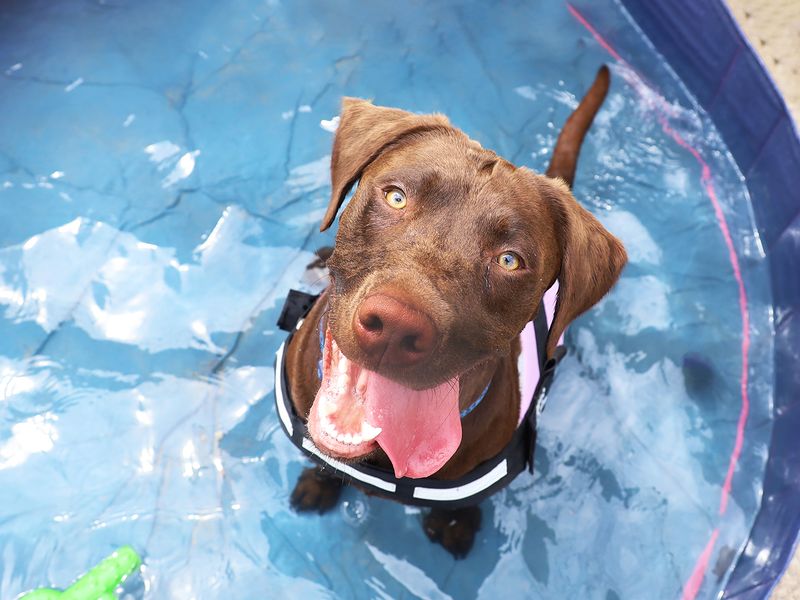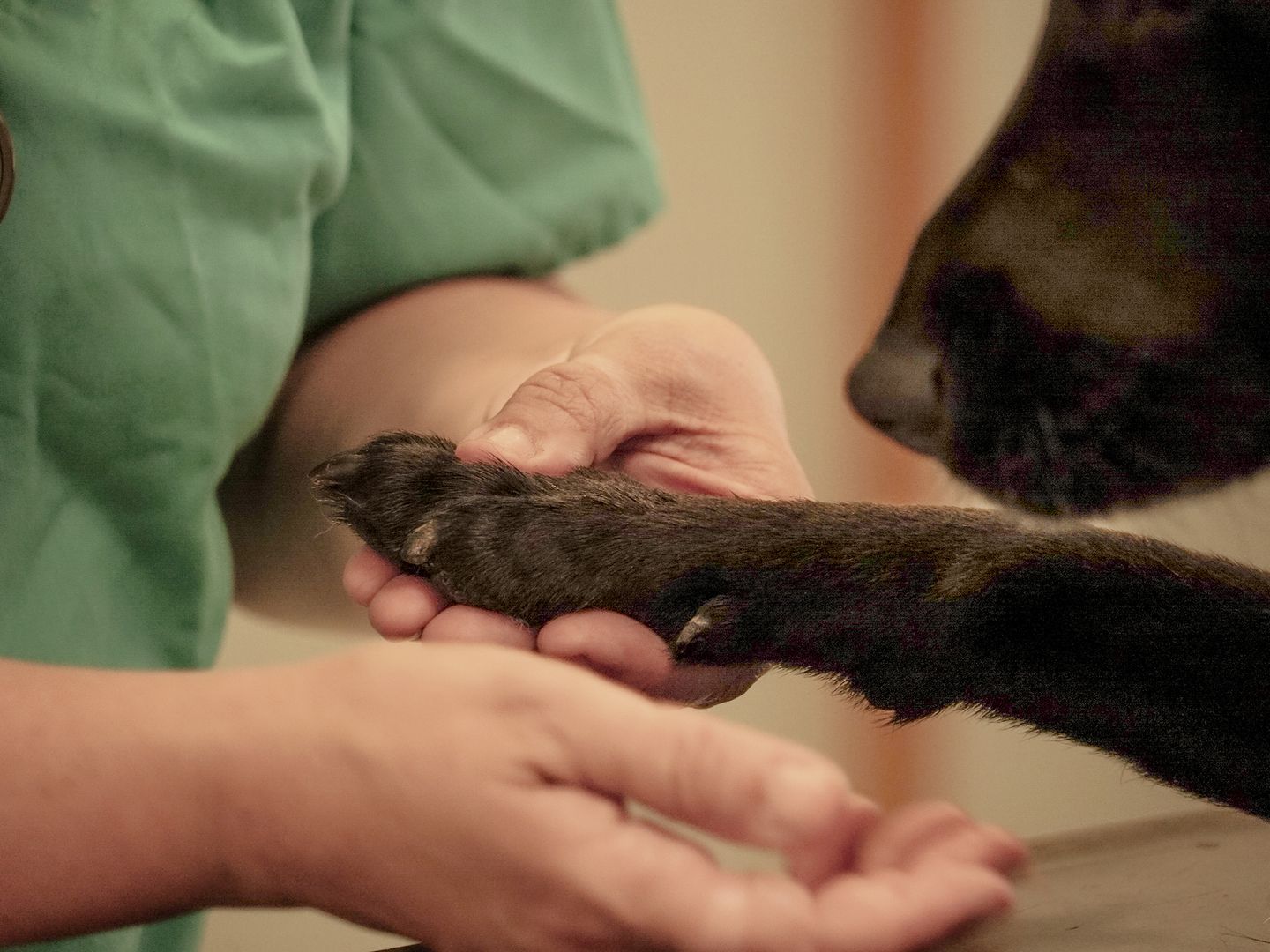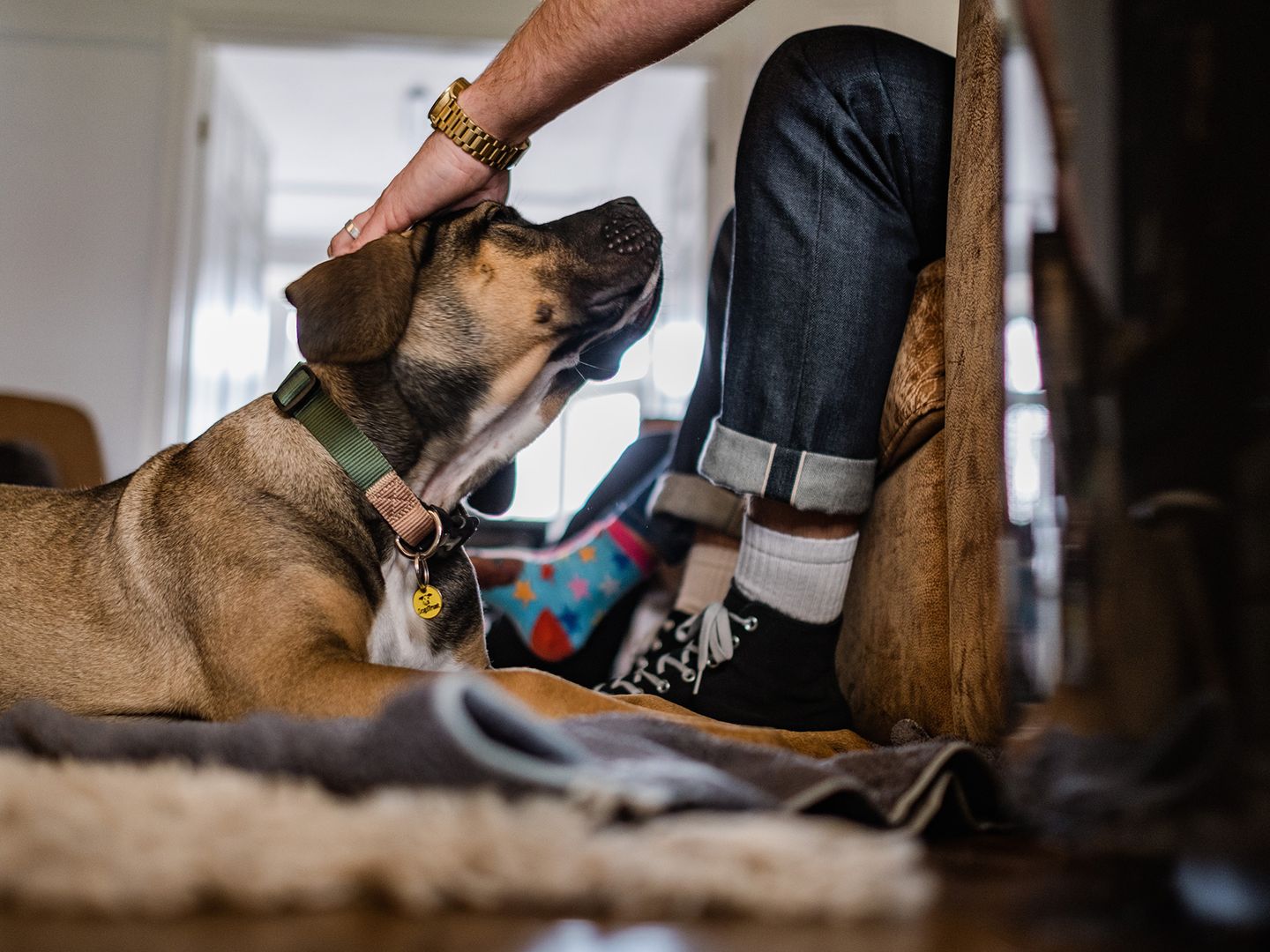Why your dog licks you and what to do about it
Ever wonder why your dog licks you so much?

It may sometimes feel like you’re nothing short of a gourmet meal to your pooch. But there are lots of reasons your dog might lick you or themselves.
On this page, we’ll be answering all your burning questions about licking, including:
- why your dog licks you
- why your dog licks themselves
- how much licking is too much for a dog
- how to stop your dog from licking.
So, towel off that arm, distract your pup with their favourite toy and get comfy.
Why your dog licks you
Licking is a natural behaviour for most dogs, and there are several possible reasons why your dog might do it. It can be a form of mutual grooming, or a way to seek comfort or communicate with you.
But it’s important to observe your dog and be aware, in case there’s another reason. Always speak to your vet if you have any concerns.
On your face or ears
Your dog might try to lick your face or ears due to interesting smells in these areas – e.g. around your mouth after eating.
It’s important to always behave safely around your dog, particularly where children are involved. Avoid letting children get too close to your dog’s face, as this can be a safety risk.
The spreading of disease or infection is also a risk factor for close facial contact with your pooch.
On your hands or feet
As with the face, your dog might try to lick your hands or feet if there are interesting smells on them. This could be from food after you’ve eaten, or if you’ve stood in something.
Washing your hands or feet to get rid of the smells should help with this.
Why your dog licks themselves
Your dog licking themselves is a natural part of self-grooming. You might spot them doing it to clean their fur after a long walk or a bath.
But, as with any licking, it’s always important to be aware and make note of any patterns. There are times when self-licking could be a sign of itching, pain or stress.
If your dog’s fur on a particular part of their body is visibly red or brown in colour, it could be ‘saliva staining.’ This usually indicates that they’re licking that area excessively.
Speak to your vet if you have any concerns.
On their paws
Dogs often lick their own paws. It could simply be a part of their grooming routine, but it’s always worth keeping an eye on them.
Some doggy detective work may be needed. Observe your dog and look out for anything unusual, or a pattern. Are their paws clean? Is there anything on or in them? Could their nails be digging in? They could have something uncomfortable stuck there, like dirt or a stone.
Can you see lumps or swellings on or around the paw? Dogs’ paws can sometimes develop cysts or growths. Foreign bodies like grass seeds can also get into the paw causing infection and swelling.

An allergy could be behind your pup’s paw-licking. Their body may be reacting to things in the environment like pollen, dust, or fleas. Allergies to certain foods can also make a dog’s skin itch.
Again, can you identify a pattern? Do they lick their paws after walking in grass, or when they’re settled in the evening? Have you changed their food recently? Are they up to date with anti-parasite treatments?
It could also be a sign of anxiety or boredom. Always look out for changes in your dog and contact your vet if you have any concerns.
On their front legs
As with licking their paws, dogs may lick their legs as part of their grooming routine. It could also be a sign of anxiety, stress, pain or allergy.
The important thing is to keep track of anything unusual, or any pattern in your furry friend’s licking habits. Speak to your vet if you’re concerned about anything.
Their lips
It's normal for dogs to lick their lips after eating or drinking.
Excess saliva production (drooling) may also cause your dog to lick their lips. This can be caused by waiting to be fed, but it could be a sign of nausea or pain – particularly dental pain.
It’s important to keep an eye on your dog’s dental health and speak to your vet if you’re worried.
Licking their lips may sometimes be a sign of a dry mouth in response to stress or anxiety. If you notice this, give your dog the space they need and speak to a vet or qualified behaviourist if you’re concerned.
Their bum
Your dog licking their bottom isn’t usually a cause for concern and is part of a normal grooming routine. Excessive licking, on the other hand, may indicate a problem.
If your dog is licking their bottom a lot, they could have an issue with their anal glands. These are two glands that sit just inside the bottom. These glands can become inflamed, blocked or infected, causing discomfort for your dog.
Skin irritation or intestinal worms also lead to excessive licking around the bottom. If you notice your dog licking their bottom more than usual, book them in to have the area checked by a vet.

How much licking is too much for a dog
Your dog’s licking could be due to pain, skin irritation, anxiety, distress or boredom. So, it’s important to consider how you can help them feel better and seek further support.
Any licking that’s obsessive or compulsive in nature should be flagged to your vet. This includes persistent licking of body parts, furniture, surfaces, or walls.
Other signs of excessive licking include significant wetness, discolouration or thinning of their fur, or sore skin. Speak to your vet if your dog is showing any signs of this, or if you’re worried.
How to stop your dog licking
There’s no one-size-fits-all answer for how to stop your dog’s licking habits. It’s a natural behaviour for most dogs. Giving your pooch some suitable items to lick and chew will offer them an outlet for this behaviour.
If you’re concerned about your dog’s licking habits, it’s important to get to the root of the problem and speak with your vet. They may also wish to refer you to a qualified behaviourist for support.
The bottom line
Pooches love to lick, and that’s okay – most of the time. The important thing is that you’re alert to any changes in your pup’s licking habits. Speak to your vet if you’re concerned. Until then, there’s nothing to do but embrace the doggy dampness.
Related articles




